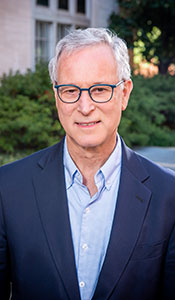The previous year drew to a close with the recognition of an inspirational family affected by NF who has shown unique courage, determination, and leadership in facing the challenges so familiar to other NF families. On November 22, 2014, a well-known Birmingham family in the NF community – Renie and Philip Moss and their children, Philip and Helen – received the prestigious Strength and Honor Award at the Children’s Tumor Foundation (CTF) BeNeFit II in Detroit, Michigan. The well-deserved recognition of this special family is based on their leadership role in establishing the Alabama chapter of CTF and their ongoing, tireless dedication to NF-related education, fundraising, and outreach. With more than 1,100 people in attendance, the superhero-themed gala raised approximately $3 million for CTF, the major source of patient advocacy and research support for all forms of NF in both adults and children. A brief video of the Moss family’s story and Renie’s and Philip’s reflections of the gala and the Strength and Honor Award can be found on the CTF web site.
As a new year begins, we at UAB continue our commitment to advancing and facilitating research for all forms of neurofibromatosis. In support of this commitment, UAB serves as the national coordinating center for the NF Clinical Trials Consortium, a collaborative group of 17 medical centers across the country (and one in Australia) dedicated to conducting clinical trials of the most promising drug therapies for all forms of neurofibromatosis. During the NF Clinical Trials Consortium steering committee meeting held last month in Baltimore, discussions were held regarding selection criteria for topics of upcoming clinical trials. Frequently, two specific questions that arise from NF patients regarding clinical trials are: Why are the entry criteria for clinical trials so strict?; and Why aren’t more clinical trials conducted for more features of NF?
Regarding the first question, it is understandable that many NF patients are interested in participating in clinical trials to assist in advancing research and to receive drug therapies that might be beneficial in treating a specific feature of NF. The purpose of a clinical trial is to conduct a test of a specific medication to determine if it has a potential benefit. It’s important to understand that clinical trials must be conducted according to strict protocols, and in the case of new drugs, the trials are monitored by the FDA. Also, data have to be collected with strict adherence to the protocols to ensure that results are valid and usable. If a trial proves to be effective, a specific drug could be made available to a wide number of people, instead of just the few individuals who participated in a specific trial. Strict entry criteria must be maintained to ensure the validity and reliability of the clinical trial, which in the long run benefits the entire NF community. These criteria include: A confirmed diagnosis of NF; the confirmed presence of the NF characteristic(s) being investigated in the trial; and the absence of a prohibitive medical history, such as reduced kidney or liver function or other medical conditions that could compromise the study results or endanger the study participant. Because of these strict entry criteria, some NF patients are not eligible for a certain clinical trial. While this can be disappointing for these patients, it is important to remember that accepting only those patients into the trial who fit the specific criteria ensures the reliability of the trial and safeguards the potential of making a specific beneficial drug available to larger number of NF patients.
Some NF patients find it frustrating that the complications they are experiencing may not be the subject of a clinical trial and often ask how the focus of a clinical trial is determined. This is an important question, and it should be emphasized that we are interested in conducting clinical trials for all forms of NF. Because financial resources for conducting clinical trials are limited, with the minimum average cost of a trial in the hundreds of thousands of dollars, decisions regarding the focus of a clinical trial are made according to specific criteria. We are also mindful of the fact that the NF patient community is relatively small, and we want to make sure that clinical trials are done for the most promising treatments, so that we don’t overwhelm the community with trials that have little chance of working. Generally, features that are potentially life-threatening are given greater priority, such as plexiform neurofibromas and malignancies. The NF Clinical Trials Consortium Steering Committee determines the focus of a clinical trial based on the following criteria: The degree to which a specific feature of NF is problematic or life-threatening; the availability of a drug that might be effective (based on previous animal model studies); and the prevalence and availability of patients with the NF feature. The recommendations of the Steering Committee are then reviewed by an external scientific review panel and also by an external oversight committee appointed by the Department of Defense, which is the sponsor for the Consortium.
In using specific definable criteria for selecting the focus of clinical trials and the participants to whom drug therapies are administered, we’re ensuring that the results of these important studies are valid, reliable, and can ultimately be used to identify the most promising drug therapies for all forms of neurofibromatosis.
Director's Blog
Birmingham Family Affected by NF Recognized at CTF BeNeFit II Gala in Detroit, and Frequently Asked Patient Questions Regarding NF Clinical Trials
- Details
- Written by: Bruce Korf
